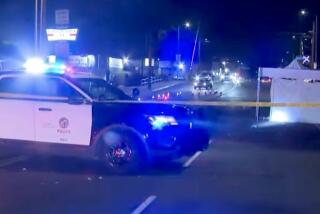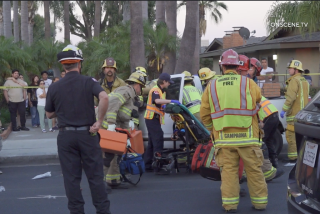Opinion: During Bike Week, a reminder that cyclists have a long way to go
Anyone who pedals her bike on the road rightly expects to enjoy the full protection of the law. Tragically, the San Francisco district attorney’s decision this week not to press charges against a driver who was obviously — as in, there’s video evidence — at fault in a collision that killed a cyclist suggests that may be asking too much.
KQED in San Francisco has the details of the case:
“San Francisco prosecutors have declined to file a vehicular manslaughter charge against a big-rig driver who hit and killed a 24-year-old woman riding her bicycle to work in SoMa last summer — a case that led to an apology and promise of reform from Police Chief Greg Suhr after a sloppy investigation initially blamed the victim.
“Amelie Le Moullac was pedaling eastbound on Folsom just before Sixth Street on the morning of Aug. 14, 2013, when the right-turning truck driven by Gilberto Alcantar struck her. Police faulted Le Moullac for her death until a San Francisco Bike Coalition staffer discovered surveillance video of the crash at a nearby auto shop.
“After watching the video, investigators concluded Alcantar was to blame for making an unsafe turn into the bike lane, killing the young public relations professional. Despite that key piece of evidence, prosecutors ultimately felt it wasn’t enough to convince a jury.
“ ‘Unfortunately, with the evidence presented, we are unable to prove this case beyond a reasonable doubt,’ said Alex Bastian, a spokesman for San Francisco Dist. Atty. George Gascón.”
There’s plenty about this tragedy that can boil blood, but those two paragraphs on convincing a jury especially ought to trouble anyone who’s been paying attention to this case. A surveillance video unearthed by cyclist advocates — and not by police — clearly shows the driver making a dangerous right turn into the path of Le Moullac, who was riding lawfully in the bike lane. That the district attorney believed the video wasn’t enough to convince a jury of the driver’s negligence suggests a troubling perception about cycling: that death or severe injury is a natural outcome of such a risky activity, and those killed or maimed while doing it shouldn’t expect much of a response from law enforcement.
It’s a sobering thought to ponder as L.A. County observes Bike Week, and gives itself a deserved pat on the back for all the cycling infrastructure popping up throughout Southern California. For beneath the veneer of celebration and ever-increasing bike lane mileage, the kind of attitude that deprives cyclists like Le Moullac of their day in court tragically persists.
More to Read
A cure for the common opinion
Get thought-provoking perspectives with our weekly newsletter.
You may occasionally receive promotional content from the Los Angeles Times.











